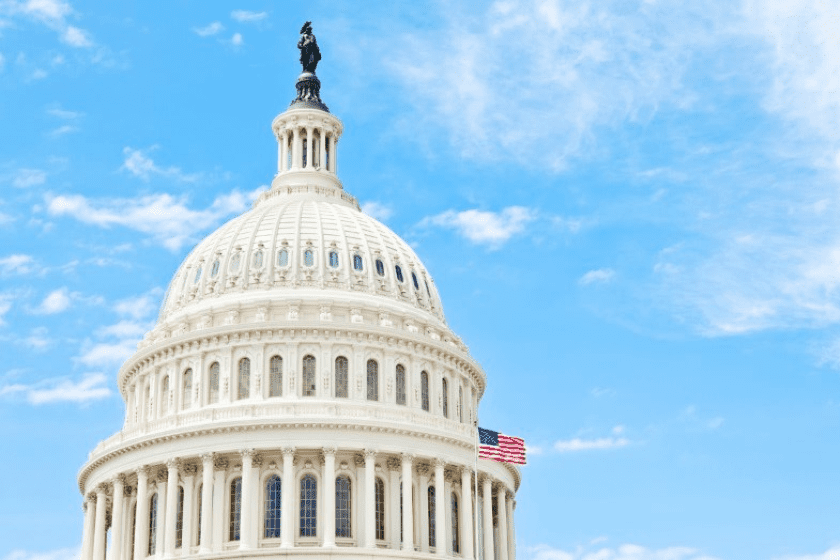
Washington, DC—Prison Fellowship®, the nation's largest Christian nonprofit serving prisoners, former prisoners, and their families, released the following statement after Congress failed to remedy existing inconsistent federal sentencing for crack and powder cocaine crimes.
Despite reports of promising bipartisan negotiations, the 117th Congress has not acted to address the disparity between federal crack and powder cocaine sentencing. Negotiations occurred on a backdrop of broad support for the EQUAL Act, which would eliminate inconsistent treatment of federal crack and powder cocaine offenses and allow for individualized resentencing for federal prisoners currently incarcerated for crack cocaine crimes.
Led by Representatives Hakeem Jeffries (D-NJ) and Kelly Armstrong (R-ND) and Senators Cory Booker (D-NJ) and Rob Portman (R-OH), the EQUAL Act has been endorsed by the National District Attorneys Association, FAMM, Americans for Prosperity, Major Cities Chiefs Association, Justice Action Network, ACLU, and a variety of conservative, faith-based, law enforcement, and civil rights organizations. During the 117th Congress, the bill gained over 75 bipartisan cosponsors, and passed the House of Representatives in September 2021 in a decisive 361-66 vote.
"In our work ministering to incarcerated men and women, we stand witness to the impact of unjust federal sentences related to crack cocaine," says James Ackerman, Prison Fellowship President and CEO. “The shameful inability of the United States Senate to pass this simple reform will mean that our Black American neighbors will continue to bear the impact of this injustice. Prison Fellowship will continue to fight for relief for men and women impacted by unjust crack cocaine laws and the total end of this unscientific and flawed disparity in sentencing."
“The crack powder cocaine disparity is a policy and moral failure that has increased incarceration, and has failed to deliver on public safety promises," says Heather Rice-Minus, Prison Fellowship Executive Vice President for Strategic Initiatives. "We’re proud of the extraordinary work of the EQUAL Act’s sponsors, our Justice Ambassadors and advocates; we will continue to press for a better, more restorative system of justice. We pray for the day when federal lawmakers will set aside politics to take a meaningful and obvious step toward proportional penalties.”
BACKGROUND
- From 1986 to 2010, it took 100 times more powder cocaine than crack cocaine to trigger the same federal mandatory minimum sentences. While Congress reduced this "100:1" disparity in 2010, it remains at "18:1" today.
- Crack cocaine is more widely used in marginalized communities of color, which also experience more punitive approaches to crime and substance abuse. The difference in how the federal government approaches crack cocaine and powder cocaine crimes continues to gravely impact Black Americans. In fiscal year 2019, 81% of defendants convicted of federal crack cocaine distribution charges were Black.
- In 2010, an overwhelming bipartisan majority in Congress passed and President Barack Obama signed the Fair Sentencing Act, which reduced the crack-powder disparity from 100:1 to 18:1. Lawmakers acknowledged that the arguments for the original disparity had been proven incorrect; crack cocaine is not more addictive compared to powder cocaine, more harmful to prenatal health outcomes, nor more likely to cause violent crime.
- In January 2021, Prison Fellowship® and the criminal justice reform advocacy group FAMM launched the #EndTheDisparity campaign to fix this inconsistency in federal law. In March 2021, the groups partnered in a Week of Action, where the organizations collectively organized 56 constituent meetings with members of Congress on the issue.
- Prison Fellowship’s lawmaker education, media placements, and grassroots and faith leader mobilization contributed to over 35 co-sponsorships for the EQUAL Act. In 2022, Prison Fellowship executed virtual and in-person volunteer advocacy events on the reform with 30 constituent meetings with United States Senate offices.
PRISON FELLOWSHIP
Prison Fellowship is the nation’s largest outreach to prisoners, former prisoners, and their families, and a leading voice for criminal justice reform. With more than 45 years of experience helping restore men and women behind bars, Prison Fellowship advocates for federal and state criminal justice reforms that transform those responsible for crime, validate victims, and encourage communities to play a role in creating a safe, redemptive, and just society.
For interview requests, please contact Jim Forbes, Prison Fellowship's Director of Communications, at 703.554.8540 or email him at Jim_Forbes@pfm.org.